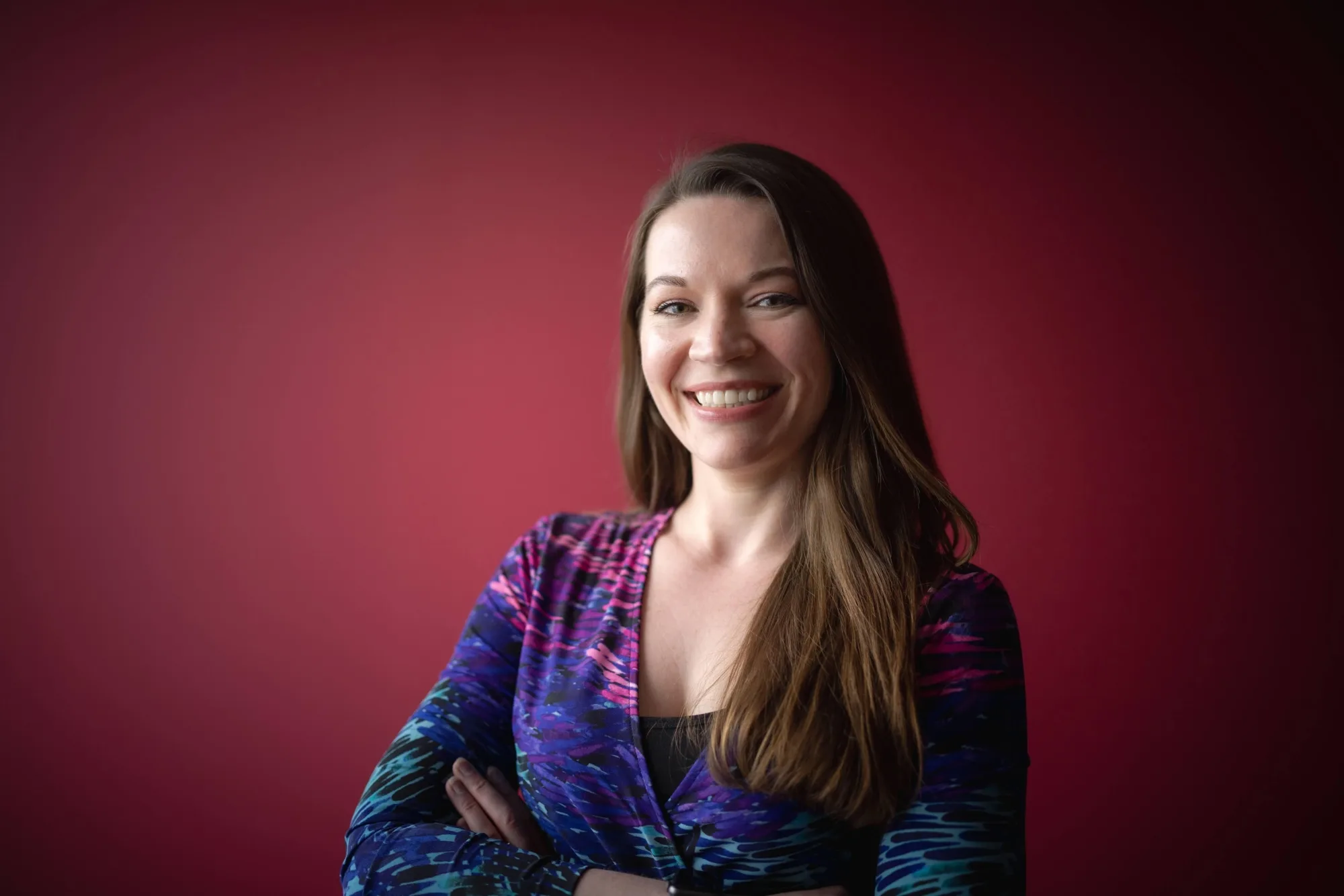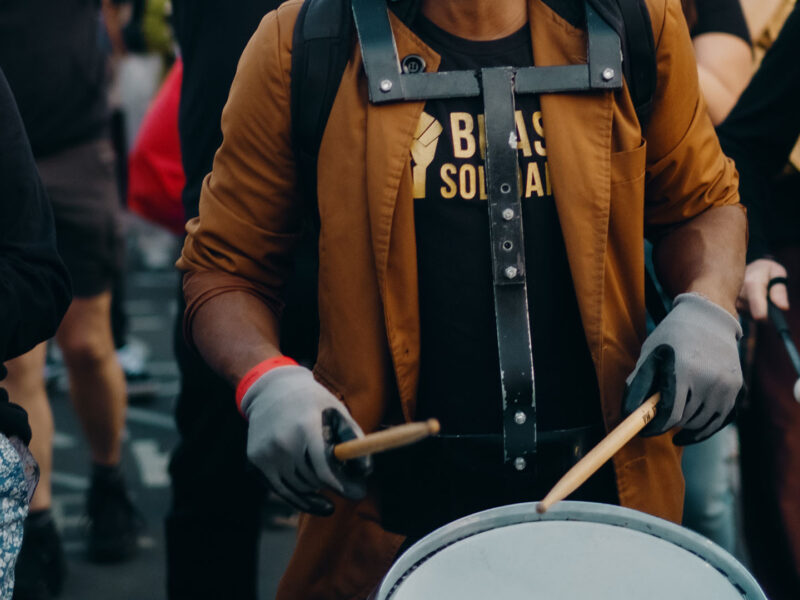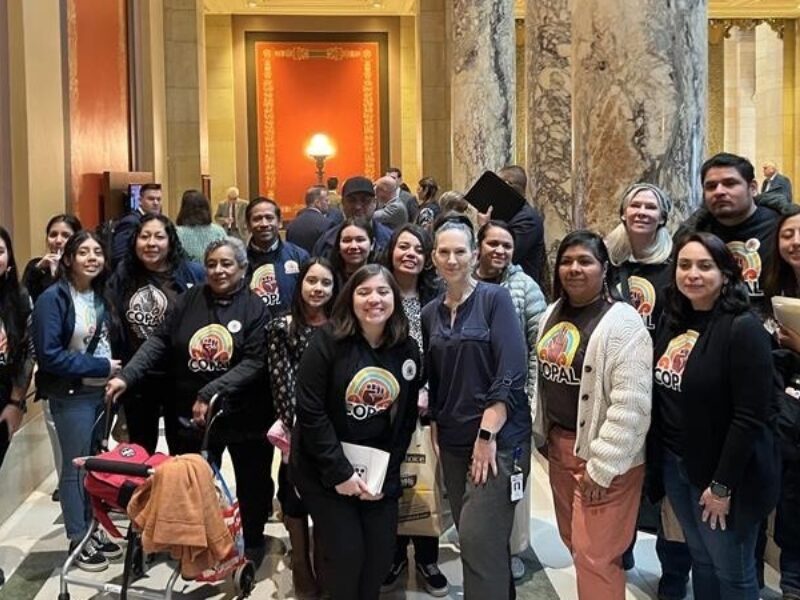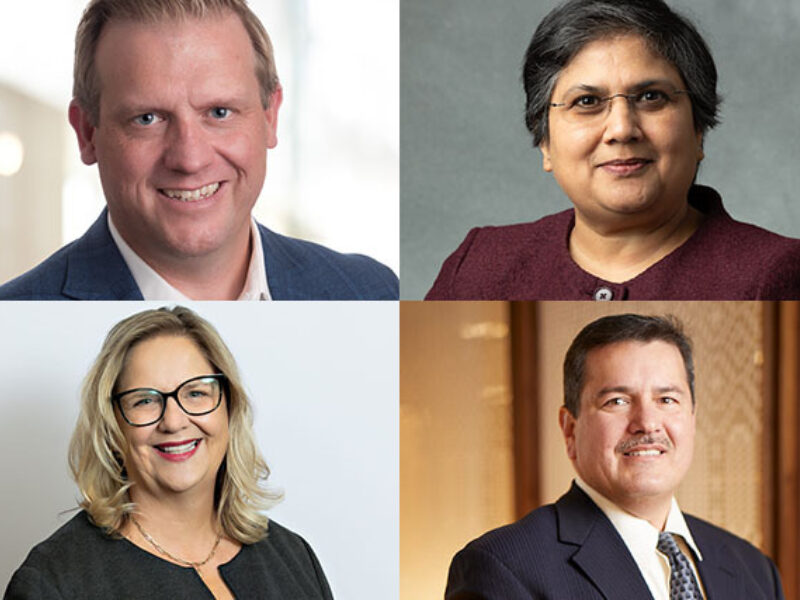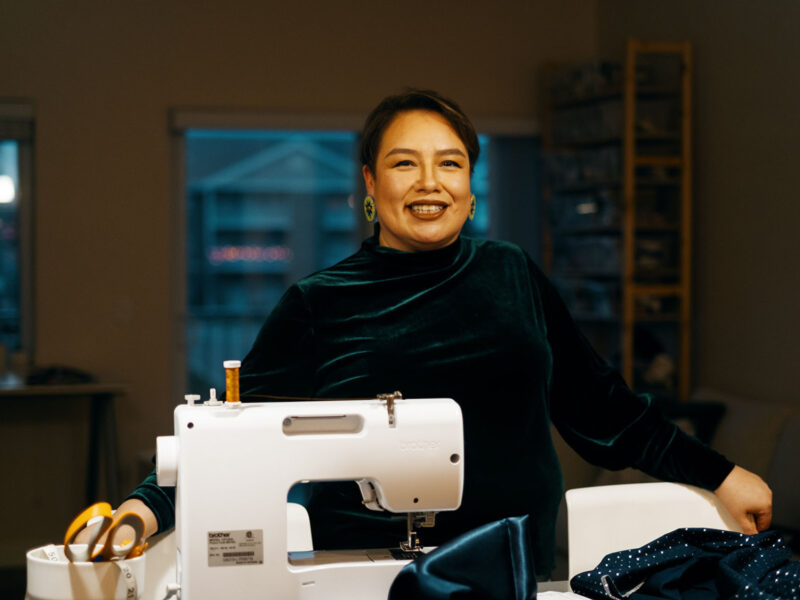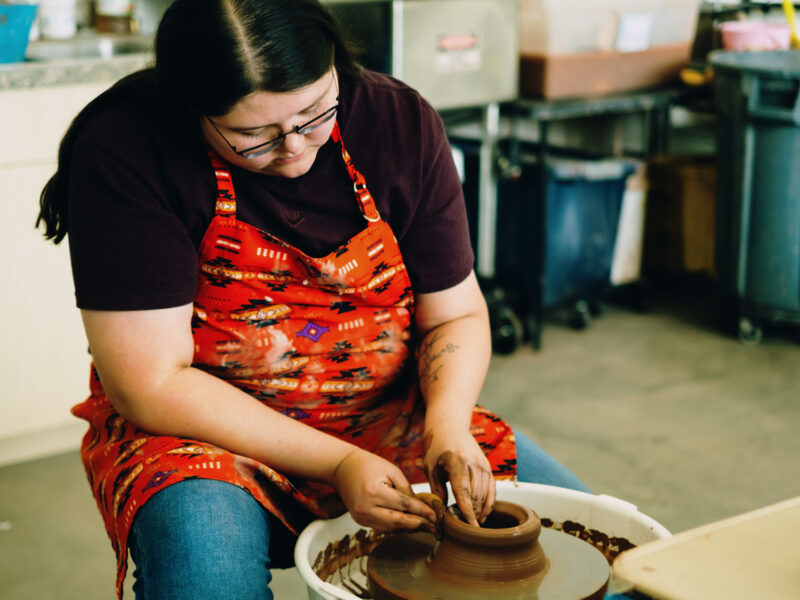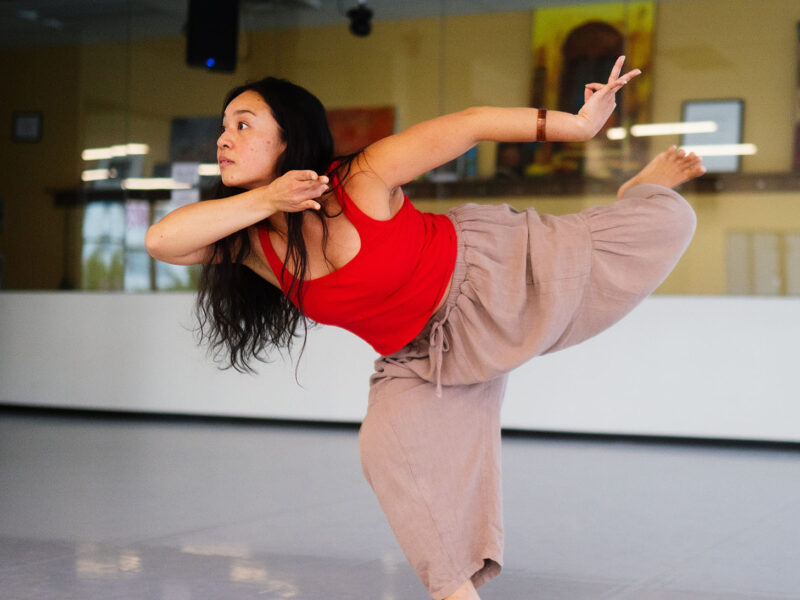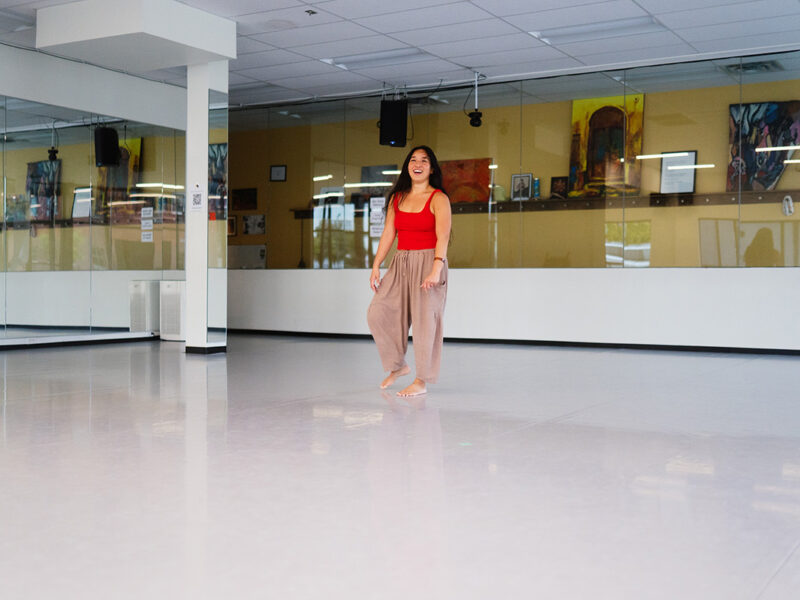Impact in Action: Democracy
Changing my perspective has changed my approach to finding common ground and building community.
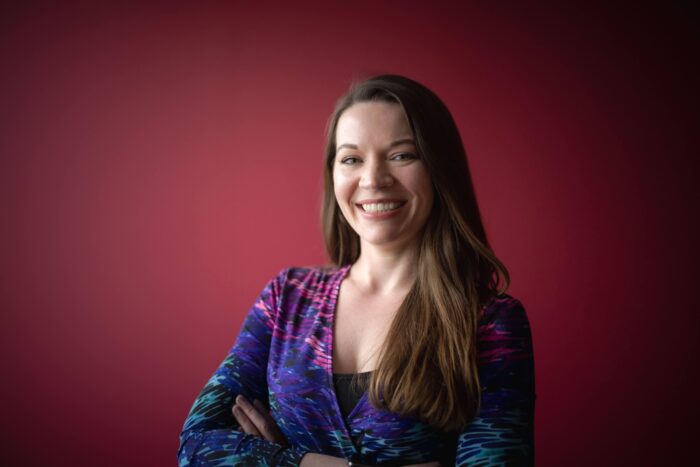
By Kathleen Smith, Director of Marketing & Communications
This summer, I learned something that changed how I lead.
I had the opportunity to join a cohort of people from across the country for a week-long Facilitating Cultural Change (FCC) workshop. The sessions, led by facilitators Beth Zemsky, Athena Adkins and Liz Loeb, opened my eyes to the power — and the challenges — of bridging across differences.
Over the course of the week, our cohort of 30 people from different states, sectors, racial, religious, and gender identities came together to explore how we could deepen our impact to advance the change we want to see in community. Each day of the training included a mix of discussion and hands-on exercises designed to build our personal toolkits.
One exercise in particular has stayed with me.
Two participants stood on opposite sides of the room, representing groups that often make assumptions about each other: young and old, urban and rural, or people from different cultural backgrounds. The rest of the group took turns sharing stereotypes each side might hold, before stepping forward to stand in the space between the two participants.
By the end, a line of a dozen people stood between the original pair. They could no longer see each other.
The exercise was simple, but its message was profound: the assumptions we carry can block us from truly seeing and understanding one another.
This moment crystallized something for me: when we focus on perceived differences, we miss opportunities to connect, learn and collaborate. In my work in the nonprofit sector, I see how this could translate into overlooking solutions or partnerships that exist right in front of us.
And this isn't an issue unique to the nonprofit sector. Despite differences in race, religion, sectors, job titles and life experiences, all the participants in my cohort felt the weight of wanting to create positive change in our communities.
We were united in that common goal — even if the solutions for creating that change were different.
“When we focus on perceived differences, we miss opportunities to connect, learn and collaborate.”
Kathleen Smith, director of marketing & communications
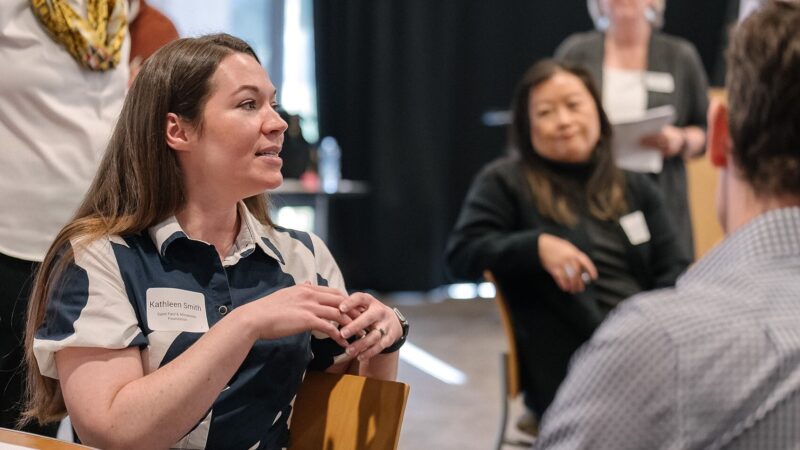
Putting Ideas to Practice
After FCC, as we moved from summer to fall in Minnesota we collectively experienced the violence of the assassination of the Hortmans and the shooting at Annunciation Catholic Church. Hearing the divisive rhetoric that followed both events, I found myself coming back to this idea of commonalities. If I was dreaming of change, was I also being open to different ideas about how that change could be accomplished?
Something I’ve noticed since my FCC experience is a greater tendency to listen. I now find myself asking questions to understand the “why” behind someone’s perspective, identifying shared values and seeking to understand differences — even when I know my own values or opinions are unlikely to change on a given issue.
Now, when I engage in a conversation around a potentially divisive topic, I find comfort and confidence in this idea: Movement-building is stronger when we focus on what we are for, rather than solely on what we are against.
This learning is top of mind for me as we head into November’s election season. How am I inviting more people into dialogue and action around the issues that are important to me? Am I creating spaces for open dialogue? Or am I letting my own assumptions stand between me and the type of change I want to see?
Civic engagement and participatory democracy are incredible tools for change. And so is a simple conversation. I’ve found that when I invite people in to connect on what we’re for, it’s easier to find that common ground without feeling my own values or ideas are lost.
If you’re also thinking about how to continue building bridges in your work or personal life, I encourage you to:
- Find opportunities to pause and reflect
- Connect with others committed to positive change
- Strengthen your personal toolkit around communicating across differences
In a time when divisions can feel insurmountable, investing in the skills to bridge gaps and engage openly with others is not just valuable — it is essential for building stronger communities and a healthier democracy.
“I find comfort and confidence in this idea: Movement-building is stronger when we focus on what we are for, rather than solely on what we are against.”
Kathleen Smith, director of marketing & communications
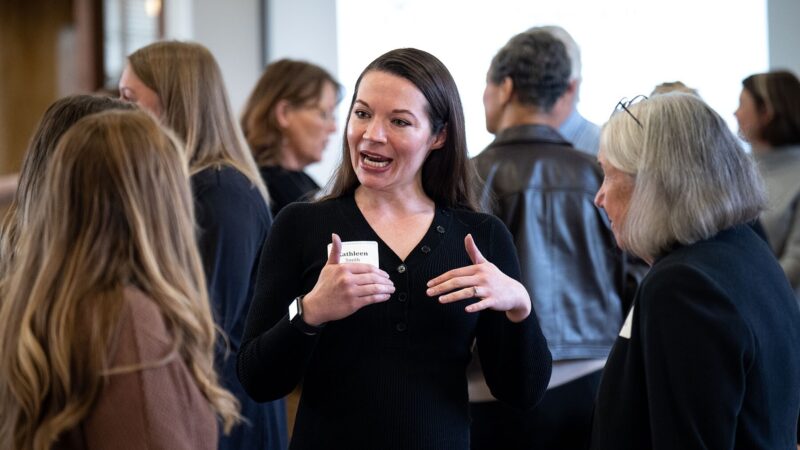
The Foundation's Impact in Action
The Saint Paul & Minnesota Foundation supported the Facilitating Cultural Change workshop through a grant to support scholarships for program participants.
As director of marketing & communications, Kathleen Smith translates strategic vision into actionable plans. Her favorite part of the job is thinking ‘big picture’ about storytelling as a way to drive positive impact throughout Minnesota. She joined the Foundation in 2015.

